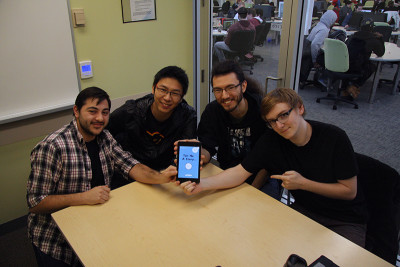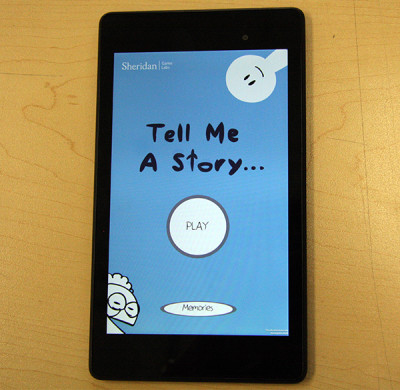STORY BY RACHEL LEE-THOMAS
The winning teams of this semester’s game design “Sprint Week” created storytelling games to help older and younger generations connect. The winners were announced on Nov 13.
Games were play-tested and judged last month with Once upon a Dice Roll winning best physical game, and Tell me a Story winning best digital game. Games during the week were created during a four-day blitz, from brainstorming through to prototyping.
“Each day, the groups met with faculty for consultations and questions,” said game design instructor Josh Pidsadny. “This year’s challenge was to design a game appropriate for both elderly and younger people.”
Judging for this semester’s Sprint Week involved faculty members of the Elder research group, and participants in the elder research program.
Being such a tight window, teams are bound to deal with trial and error, and must use creative and quick problem-solving skills.
“Sometimes we would get conflicting feedback,” said first-year game design student Keita Lorente. “Multiple people would play-test our game and provide different suggestions. It was up to the group to make the final decision.”
With such a short time frame, there was only so much space for adjustments. For the winning digital team, a surprising turn of events landed them in first place.
“We started out with a digital board game with trivia questions,” said third-year game design student Michael Amato. “The idea was to promote grandparents bonding with their grandkids.”
After getting some feedback from professors, Amato’s group realized they needed to focus on something with less tablet use.
“We wanted to make something less reaction-based, since it’s an older generation playing,” said second-year student Brennan McNamara, a member of Amato’s team.
On the third day of Sprint Week, they decided to scrap the board game idea to create what came to be the winning app Tell me a Story.
The game begins with a storyteller who is given a prompt and then has one minute to tell a story that is true or false, while trying to fool the other players. A score is kept and the app has a feature that records the speaker as they are telling the story, which is then stored in a “Memories” folder.
“Some of our ideas were great in theory but we had to keep them realistic,” said winning group member Jesse Sponder. “We wanted to make the game usable through Wifi but we didn’t have the time to step back and make adjustments.”
Other challenges included creating a game that would appeal to both younger and older players. The two winning games included themes revolving around conversation and storytelling, which helped people of all ages connect.
Members of the winning teams say the most rewarding part of the week was watching people play and enjoy their games.
“One of our professor’s sons was there and he didn’t want to stop playing,” said Shepherd Cameron.
All members of the winning teams will receive a $50 gift card to EB games.
Moving forward, the physical game group is in the process of fine-tuning its game in preparation for getting it on the market.
“We’re trying to produce the game but there are a number of ways to go about it,” said Dylan Carew. “We could either sell the idea or produce it for royalties.”
The digital game group is working towards getting its game on the app store.
“It’s a great game to play with friend or family,” Amato said. “We’re working towards fine-tuning and getting it out there.”



